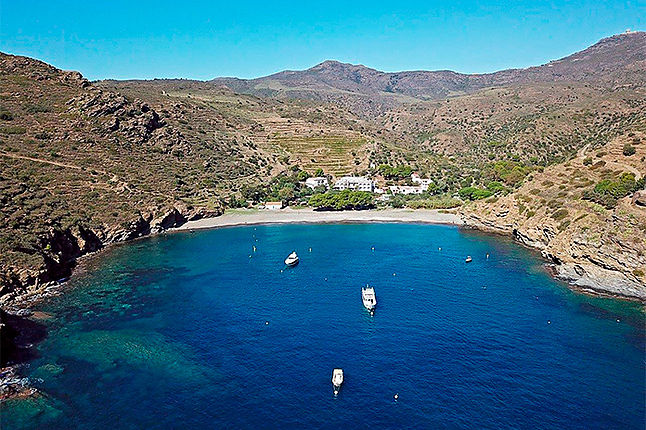The Cala Jóncols group, first with Residu Zero in Girona and one of the first in Catalonia
The family business that runs it has promoted an innovative waste management system with cutting-edge technology to close the circle and advance in the sustainable development of the company
Self-sufficiency
And to continue advancing in the line of sustainability and self-sufficiency, the group plans to install solar panels to produce electricity for its own consumption and enable charging points for electric vehicles. In addition, it plans to build a winery to make its own wine (following the ecological methodology and the hand of biodynamics and adjusted to the dimensions of the vineyard, which with less than one hectare is the smallest in Catalonia); and a mill to make oil from their own olive trees. Both constructions, which will be fully integrated into the natural environment, are expected to be operational by 2022 and will be the first of their kind in Roses.
Circular economy
One of the most innovative elements of this waste management system is the composter with state-of-the-art technology installed that allows the waste generated in the restaurant, both of animal and vegetable origin, to be treated in situ and transformed. them in high quality fertilizer for the vineyard, orchard and garden. It is a natural process that has a very low electricity consumption, lower than a microwave, according to Bernd Fernka, the head of the company that sells the composter in Spain. The processor, manufactured by a Swedish company, has the capacity to absorb up to 26 tons of organic waste per year, and avoids bad odors thanks to its reverse pressure system.
As for the plastic, paper and cardboard packaging is compacted and the glass crumbles to reduce volume, facilitate recycling and minimize transport and reduce the footprint of CO2.
On the other hand, the group has for years also put in place measures to reduce water consumption and reuse it as much as possible . Initially, the water consumed in the establishment comes from the well and is purified through an osmosis system to make it suitable for human consumption, a system that also impacts detergent savings. In addition, plastic has been removed from water containers and replaced with reusable glass bottles. It also uses individual canteens for the water it offers to take away from customers. It is estimated that with this system each season there is a saving of more than 2,000 plastic containers. All this also means reducing CO2 emissions from water transport and packaging to zero.
As for the cleaning of the spaces all the chemicals have been removed and hydrolyzed water is used , which is environmentally friendly and very effective for removing bacteria and viruses and also sterilizes coronavirus surfaces. As for the laundry, it is washed with ozone, which saves 30% water and 50% detergent.
The company has had its own treatment plant for years to filter and disinfect wastewater and reuse it for irrigation of the orchard and garden. The equipment allows to recover 40 m3 per day.
The garden has been irrigated for ten years with the use of the hotel's water , once the wastewater has been treated. The lawn has been replaced by an upholstery plant, the lippia, which reduces water consumption by 90%; the land was prepared in such a way that there was no need to apply artificial fertilizers and native plants, such as agapanthus and caura, were used, which integrate perfectly into the cove, according to landscape designer Mònica Martí, in charge of redesigning the space to make it more sustainable.
In addition, they have introduced a flock of lambs that contributes naturally and sustainably to clearing the undergrowth.
Raise customer awareness
"Reducing waste in the hotel sector has become essential if you want to be a responsible company," say from the company that manages Cala Jóncols. The company is aware that the involvement of all agents is needed for this whole system to keep moving forward. "We have motivated and involved our teams in this process towards zero waste and we also want to raise awareness among our customers," they add. For this reason, they will install signs in different parts of the establishment where the whole waste management process that follows will be explained. In addition, they have created a figure that will be responsible for ensuring the proper functioning of this system.
Cala Jóncols Group
The Cala Jóncols de Roses group is a family business. The hotel, which has 30 rooms, opened in 1955, next to an old fishermen's shelter that is still preserved in the area; is managed by the Gómez-Fernández family.
The company, which has stood out for its innovative initiatives in the world of wine and cava aged under the sea, has had a vineyard since 2015 (the smallest in Catalonia with an area of less than one hectare) which was born to recover the red hawthorn, an autochthonous variety from the Empordà and northern Catalonia. The project is completed by two diving centers located: one in Cala Jóncols, and the other in the fishing port of Roses.

